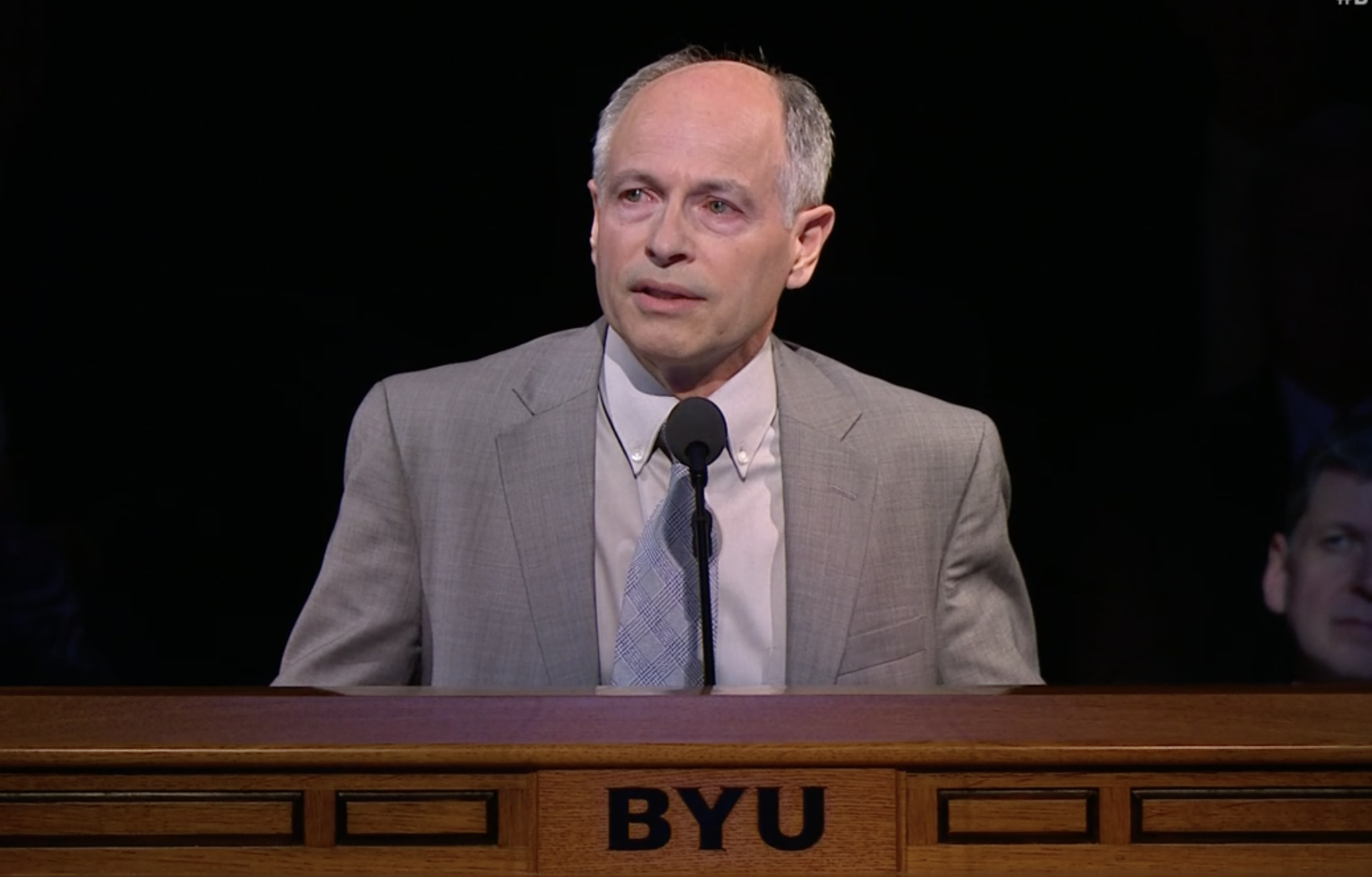
Scott Miller, dean of the BYU College of Humanities and professor of Asian and Near Eastern languages, began his Oct. 2 devotional address by inviting students to picture themselves on their graduation day receiving their diploma. He then asked them to imagine failing a quiz and subsequently deciding to give up and go home, where a fake diploma would await them.
Miller emphasized that while immediate relief might be felt, it would wear off as the student realized they would live out the remainder of their life in their parent’s basement. He compared this experience to when hard trials are felt in life and prayers are sent up to heaven for relief.
“Sometimes, when we pray to have our trials end quickly, we are like first-year students sending home pity-me texts, and if God were to immediately grant our request, swoop in and rescue us, well, for us, eternity might just prove to be something of a basement experience,” Miller said.
Miller said God gives people challenges because he knows their eternal character and that trials are opportunities to move forward and meet divine potential.
He continued his remarks by sharing a story from Japanese writer and poet Kajii Motojirô’s creative essay, “A Picture Scroll of the Dark.” The story describes a man on a fearful and dark path who gains hope when he sees someone else ahead of him on his same path.
According to Miller, Motojirô’s story gives hope that there are dividends of blessings given when faith is exerted.
“We may come to learn that simple faith might be as fragile as starlight but it can also guide our journey, fixed as the north star,” Miller said.
Miller also mentioned “East Coker,” a poem by T.S. Eliot, which describes the author’s conversion to Christianity. In the poem, Eliot describes how opportunities and possibilities can arise, even in thick darkness.
Miller compared the two stories to show the powerful impact of light and darkness in relation to spiritual progression. He described the fear faced in dark circumstances as a crisis of uncertainty and explained three different types of doubt that affect us in different ways.
The first type Miller referred to as “dropout doubt,” which he said happens as people doubt themselves or Heavenly Father due to differences in their spiritual journey compared to those around them. He compared this experience that some go through to Oliver Cowdery’s experience when he lost the ability to translate the Book of Mormon.
“Oliver, who exercised faith but did not get the same results Joseph (Smith) did, spent a decade brooding over his inabilities and uncertainties, and struggling with his pride in the face of Joseph’s leadership, before separating himself from the church for a time,” Miller said.
He warned of leaving difficult and uncomfortable situations because there’s a chance “we prematurely remove ourselves from our best opportunities to learn and grow.”
The second type of doubt Miller referred to was “denial doubt,” which he described as occurring when people “avoid acknowledging any uncertainty” and might “focus instead only on what we do know for certain.” This avoidance can prohibit people from moving forward and deny them the chance to grow spiritually, he said.
The last type of doubt Miller described, “humble uncertainty,” has a more positive effect on people when they admit their weaknesses and humble themselves.
“It is when we combine humility about the limits of our knowledge with honest questions about life’s perplexities that we demonstrate the kind of humble uncertainty that will expand our souls,” he said.
Next week’s devotional address will be replaced with the Homecoming Opening Ceremonies, which will be held on Oct. 9 in the Marriott Center at 11:05 a.m. MT.




